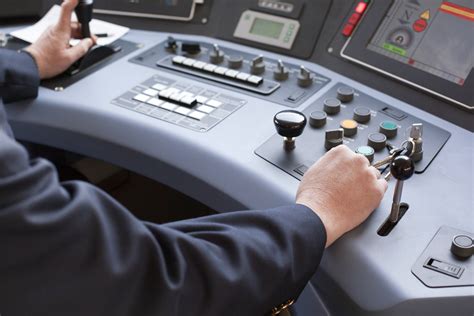Train Driver: How To Become One (Duties, Salary & Outlook)

Being a train driver is a unique and exciting career that requires a specific set of skills and qualifications. In this article, we will explore the duties, salary, and outlook for train drivers, as well as the steps you can take to become one.
Duties of a Train Driver
The primary duty of a train driver is to operate trains safely and efficiently. This includes:
- Driving and controlling the train
- Following signals and safety procedures
- Maintaining communication with the control center and other staff
- Ensuring the safety of passengers and crew
- Monitoring the train’s performance and making adjustments as necessary
Qualifications and Training
To become a train driver, you typically need:
- A high school diploma or equivalent
- A valid driver’s license
- A clean driving record
- Good vision and hearing
- Excellent communication and problem-solving skills
- The ability to work well under pressure
Once you meet these basic requirements, you will need to undergo training specific to the role of a train driver. This training is typically provided by the railway company you will be working for and includes both classroom instruction and on-the-job training.
Classroom Instruction
During the classroom portion of your training, you will learn about:
- Railway operations and safety regulations
- Train control systems and signaling
- Emergency procedures
- Customer service skills
This classroom instruction is essential for understanding the technical and safety aspects of the job.
On-the-Job Training
Once you have completed the classroom portion of your training, you will begin on-the-job training. This involves:
- Shadowing an experienced train driver
- Learning how to operate the train controls
- Practicing emergency procedures
- Gaining hands-on experience with different types of trains
This on-the-job training is crucial for developing the practical skills and experience necessary to become a competent train driver.
Salary and Outlook
The salary of a train driver can vary depending on factors such as location, experience, and the specific railway company. However, according to the Bureau of Labor Statistics, the median annual wage for locomotive engineers (which includes train drivers) was $64,210 as of May 2020.
In terms of job outlook, the demand for train drivers is expected to remain steady in the coming years. While automation and technological advancements may lead to some changes in the industry, there will still be a need for qualified train drivers to ensure the safe and efficient operation of trains.
FAQs
Q: How long does it take to become a train driver?
A: The time it takes to become a train driver can vary depending on the specific training program and the availability of job openings. However, it typically takes several months to a year to complete the required training and gain the necessary experience.
Q: Can I become a train driver with a criminal record?
A: Having a criminal record may affect your ability to become a train driver, as railway companies prioritize safety and security. However, the impact will depend on the nature and severity of the offense. It is best to check with the specific railway company for their hiring policies regarding criminal records.
Q: Are there opportunities for advancement in this career?
A: Yes, there are opportunities for advancement in a career as a train driver. With experience and additional training, you can progress to roles such as a supervisor or instructor. Some train drivers may also choose to specialize in operating specific types of trains, such as high-speed trains or freight trains.
Q: What are the working hours like for train drivers?
A: Train drivers often work irregular hours, including evenings, weekends, and holidays. They may also be required to work overnight shifts. The specific working hours will depend on the railway company and the type of train service they operate.
Q: Is being a train driver a physically demanding job?
A: While being a train driver does require some physical exertion, such as operating controls and performing safety checks, it is not considered to be highly physically demanding. However, train drivers must be in good overall health and have the ability to sit or stand for long periods.
In conclusion,
Being a train driver is a rewarding career that offers the opportunity to travel, work independently, and play a crucial role in the transportation industry. By meeting the necessary qualifications and undergoing the required training, you can embark on a fulfilling career as a train driver.

